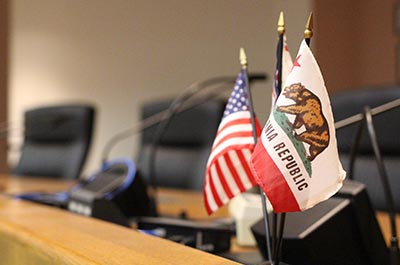The California Department of Public Health (CDPH) recently updated its COVID-19 related guidance for K-12 schools for the 2022-2023 school year, which addresses and updates guidance on masking requirements, reporting, and paid leave.
The plaintiffs in Brach v. Newsom (9th Cir. June 15, 2022, No. 20-56291) __ F.4th __, originally filed a case in U.S. District Court for the Central District of California, challenging various orders, including the 2020-2021 Reopening Framework, issued by California government officials concerning the operation of both public and private schools during the COVID-19 pandemic.
In Carson v. Makin (2022) ___U.S.___ [141 S.Ct. 1987], the United States Supreme Court, by a 6-3 decision, ruled that Maine’s tuition assistance program, which prohibits funding to nonsectarian schools, violated the Free Exercise Clause of the First Amendment.
Governor Newsom signed the Education Omnibus Budget Trailer Bill (AB 181) on June 30, 2022, which was effective immediately and includes significant changes to independent study requirements.
Last month, the State Allocation Board (SAB) affirmed its position that school districts and county offices of education must competitively bid contracts to acquire modular building components for installation on a permanent foundation, and that “piggybacking” may not be used.
On June 23, 2022, the United States Department of Education (Department) released its long-awaited Notice of Proposed Rulemaking regarding Title IX of the Education Amendments of 1972 for public review.
On June 27, 2022, the United States Supreme Court ruled in favor of a high school football coach holding that the Free Speech and Free Exercise Clauses of the United States Constitution’s First Amendment protected his personal and individual prayer on the field following three football games in October 2015.
In Shurtleff v. City of Boston (2022) 142 S.Ct. 1583 (Shurtleff), the United States Supreme Court, for the first time, addressed a topic that presents a common and growing issue for public agencies related to the intersection between government versus private speech.
In Castro v. Clovis Unified School District (E.D.Cal. May 20, 2022, No. 1:19-cv-00821-DAD-SKO), a United States District Court recently upheld the Clovis Unified School District’s (District) decision to revoke a student’s privilege of “walking” during his graduation ceremony in response to the student posting a tweet depicting a classmate captioned with a racial sl










